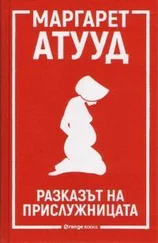“Sorry. But I’m not.”
“Of course not,” said Melanie. “But just leave them alone. If I take the brochures, they go away.”
“Are their pearls real?”
“Fake,” said Melanie. “Everything about them is fake.”
Despite all that she did for me, Melanie had a distant smell. She smelled like a floral guest soap in a strange house I was visiting. What I mean is, she didn’t smell to me like my mother.
One of my favourite books at the school library when I was younger was about a man who got himself into a wolf pack. This man could never take a bath because the wolf pack scent would wash off and then the wolves would reject him. With Melanie and me, it was more like we needed to add on that layer of pack-scent, the thing that would tag us as us—us-together. But that never happened. We were never very snuggly.
Also, Neil and Melanie weren’t like the parents of the kids I knew. They were too careful around me, as if I was breakable. It was like I was a prize cat they were cat-sitting: you’d take your own cat for granted, you’d be casual about it, but someone else’s cat would be another story because if you lost that cat you would feel guilty about it in a completely different way.
Another thing: the kids from school had pictures of themselves—a lot of pictures. Their parents documented every minute of their lives. Some of the kids even had photos of themselves being born, which they’d brought to Show and Tell. I used to think that was gross—blood and great big legs, with a little head coming out from between them. And they had baby pictures of themselves, hundreds of them. These kids could hardly burp without some adult pointing a camera at them and telling them to do it again—as if they lived their lives twice, once in reality and the second time for the photo.
That didn’t happen to me. Neil’s collection of antique cameras was cool, but cameras that actually worked were non-existent in our house. Melanie told me that all the early pictures of me had been burnt up in a fire. Only an idiot would have believed this, so I did.
—
Now I’m going to tell you about the stupid thing I did, and the consequences of it. I’m not proud of how I behaved: looking back, I realize how dumb it was. But I couldn’t see that at the time.
A week before my birthday, there was going to be a protest march about Gilead. Footage of a new batch of executions had been smuggled out of Gilead and broadcast on the news: women being hanged for heresy and apostasy and also for trying to take babies out of Gilead, which was treason under their laws. The two oldest grades in our school had been given time off so we could go to the protest as part of World Social Awareness.
We’d made signs: NO TRADE WITH GILEAD! JUSTICE FOR GILIBAD WOMEN! BABY NICOLE, GUIDING STAR! Some kids had added green signs: GILEAD, CLIMATE SCIENCE DE-LIAR! GILEAD WANTS US TO FRY!, with pictures of forest fires and dead birds and fish and people. Several teachers and some volunteer parents were going to come with us to make sure nothing violent happened to us. I was excited because it would be my first-ever protest march. But then Neil and Melanie said I couldn’t go.
“Why not?” I said. “Everyone else is going!”
“Absolutely not,” said Neil.
“You’re always saying how we should defend our principles,” I said.
“This is different. It’s not safe, Daisy,” said Neil.
“Life isn’t safe, you say that yourself. Anyway lots of teachers are coming. And it’s part of school—if I don’t go, I’ll lose marks!” This last part wasn’t exactly true, but Neil and Melanie liked me to have good grades.
“Maybe she could go,” said Melanie. “If we ask Ada to go with her?”
“I’m not a baby, I don’t need a babysitter,” I said.
“Are you hallucinating?” Neil said to Melanie. “That thing will be crawling with press! It’ll be on the news!” He was tugging at his hair, what was left of it—a sign that he was worried.
“That is the point ,” I said. I’d made one of the posters we’d be carrying—big red letters and a black skull. GILEAD=DEATH OF THE MIND. “The whole idea is to be on the news!”
Melanie put her hands over her ears. “I’m getting a headache. Neil is right. No. I’m saying no. You will spend the afternoon at the store helping me out, period.”
“Fine, lock me up,” I said. I stomped off to my room and slammed the door. They couldn’t make me.
—
The school I went to was called the Wyle School. It was named after Florence Wyle, a sculptor of olden times whose picture was in the main entrance hall. The school was supposed to encourage creativity, said Melanie, and understanding democratic freedom and thinking for yourself, said Neil. They said that was why they’d sent me there, though they didn’t agree with private schools in general; but the standards of the public schools were so low, and of course we should all work to improve the system, but meanwhile they did not want me getting knifed by some junior drug pusher. I think now they chose the Wyle School for another reason. Wyle took strict attendance: it was impossible to skip school. So Melanie and Neil could always know where I was.
I didn’t love the Wyle School, but I didn’t hate it either. It was something to get through on my way to real life, the shape of which would become clear to me soon. Not long before, I’d wanted to be a small-animal vet, but that dream came to seem childish to me. After that I’d decided to be a surgeon, but then I saw a video of a surgery at school and it made me nauseous. Some of the other Wyle School students wanted to be singers or designers or other creative things, but I was too tone-deaf and clunky for that.
I had some friends at school: gossiping friends, girls; homework-trading friends, some of each. I made sure that my marks were stupider than I was—I didn’t want to stand out—so my own homework didn’t have a high trading value. Gym and sports, though—it was all right to be good at those, and I was, especially any sports favouring height and speed, such as basketball. That made me popular when it came to teams. But outside of school I led a constricted life, since Neil and Melanie were so jumpy. I wasn’t allowed to stroll around in shopping malls because they were infested by crack addicts, said Melanie, or hang out in parks, said Neil, because of the strange men lurking there. So my social life was pretty much a zero: it consisted entirely of things I would be allowed to do when I was older. Neil’s magic word in our house was No .
This time, though, I wasn’t going to back down: I was going to that protest march no matter what. The school had hired a couple of buses to take us. Melanie and Neil had tried to head me off by phoning the principal and denying permission, and the principal had asked me to stay behind, and I’d assured her that of course I understood, no problem, and I would wait for Melanie to come and pick me up in her car. But it was only the bus driver checking off the kids’ names and he didn’t know who was who, and everyone was milling around, and the parents and teachers weren’t paying attention and didn’t know I wasn’t supposed to come, so I switched identity cards with a member of my basketball team who didn’t want to go and made it onto the bus, feeling very pleased with myself.
The protest march was thrilling at first. It was downtown, near the Legislature Building, though it wasn’t really a march because nobody marched anywhere, they were too jammed together. People made speeches. A Canadian relative of a woman who’d died in the Gilead Colonies cleaning up deadly radiation talked about slave labour. The leader of the Survivors of Gilead National Homelands Genocide told about the forced marches to North Dakota, where people had been crowded like sheep into fenced-in ghost towns with no food and water, and how thousands had died, and how people were risking their lives walking north to the Canadian border in winter, and he held up a hand with missing fingers and said, Frostbite.
Читать дальше
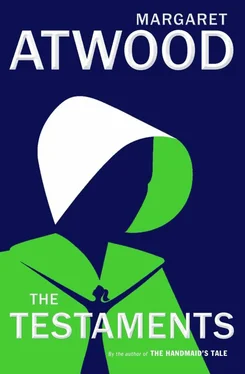
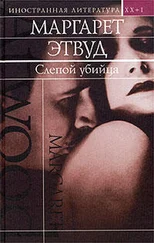

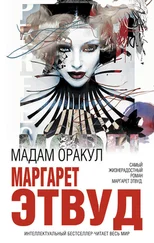
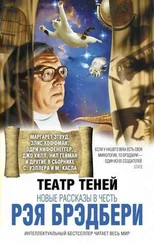
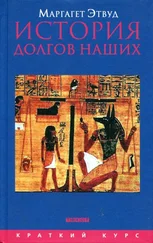
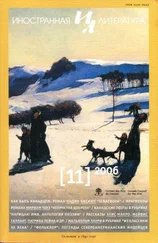
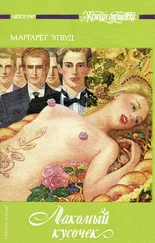
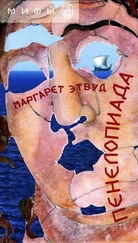
![Маргарет Этвуд - Лакомый кусочек [litres]](/books/384342/margaret-etvud-lakomyj-kusochek-litres-thumb.webp)
![Маргарет Этвуд - Избранные произведения в одном томе [Компиляция]](/books/389748/margaret-etvud-izbrannye-proizvedeniya-v-odnom-tome-thumb.webp)

